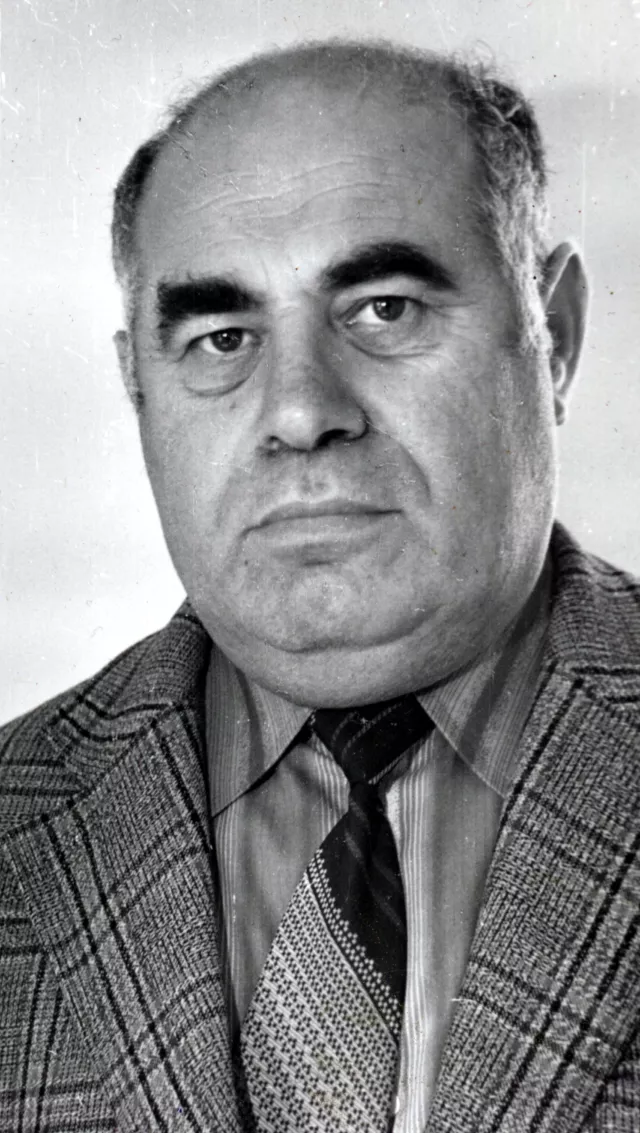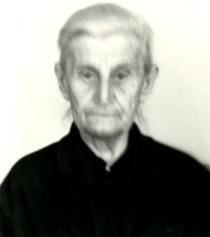This is a picture of me when I was a teacher of mathematics. The picture was taken for a wall newspaper at school in Chernovtsy in 1973.
I met my future wife, Fenia Kleiman [nee Trachtenbroit] at Chernovtsy University. We got married in 1954 when we were in our final year at university. Upon graduation my wife and I got mandatory job assignments and went to a small village in Chernovtsy region to work as teachers of mathematics. Two years later, when our assignment was over, we decided to return to Chernovtsy, but we couldn't find any vacancies at schools. There were vacancies of teachers of physics and mathematics in a Moldavian school on the outskirts of Chernovtsy. My wife and I spoke fluent Moldavian and got employed at that school. It took us several years to find a job in Chernovtsy. I finally got a job at a secondary school in Chernovtsy in 1971 and worked there until I retired in 1992.
I didn't face any anti-Semitism at work. I still keep in touch with my former colleagues, Jewish and non-Jewish. I value people for their human qualities. I did suffer from state anti-Semitism. When I was awarded a title for my achievements in education, my documents were submitted to the Ministry of Education four times before they gave their approval. At school I was head of the school trade union committee for 24 years and people brought their issues and problems forward to me.
My wife and I spoke Yiddish at home. We didn't celebrate holidays at home because teachers were referred to as 'ideological workers'. We weren't allowed to discuss religious issues with our pupils, or be religious ourselves. The practice of religion was outlawed in the USSR. However, we visited my parents to celebrate with them. We always took part when my father conducted the seder on Pesach. The only thing my wife and I could observe was fasting. We celebrated Soviet holidays at work - teachers and pupils just had to take part in the parades, and then there were concerts at school where schoolchildren performed. Afterwards teachers got together at a table to celebrate.
We were very concerned about the wars in Israel in 1967 [the Six-Day-War] and 1973 [the Yom Kippur War]. Of course, we all hoped that Israel would win. We were distressed about the violation of diplomatic relations between the USSR and Israel, but we weren't surprised. This was the typical policy of the USSR - the violation of relations with disobedient parties, that is, with those who didn't follow the communist way of progress.
My wife and I sympathized with the Jews that moved to Israel in the 1970s. We couldn't move there. My parents and my wife's parents weren't well. They couldn't move and didn't want to. Then we grew older. If we had children we would move to give them an opportunity to have a decent life, but we have no children, due to the hard years in the ghetto, and we are afraid to start a new life at our age.
Esiah Kleiman
The Centropa Collection at USHMM
The Centropa archive has been acquired by the United States Holocaust Memorial Museum in Washington, DC.
USHMM will soon offer a Special Collections page for Centropa.
Academics please note: USHMM can provide you with original language word-for-word transcripts and high resolution photographs. All publications should be credited: "From the Centropa Collection at the United States Memorial Museum in Washington, DC". Please contact collection [at] centropa.org.








